LIVING HERE FEATURE: Glade farmers promote food security, sustainability
The best piece of relationship advice that Geoff Beech ever received was on the day of his wedding when a friend told him a simple secret to a long lasting marriage:
“Find something that neither of you have done before and do it together.”
In their thirties, Geoff and his wife Terri Austin-Beech learned to ski together. Now that they have reached retirement, they are pursuing a dream 40 years in the making; they are learning to run a farm together.
In the summer of 2017, after years of moving from city to city for Geoff’s job working in the oil industry, the couple bought their very first Kootenay property in the beautiful close-knit community of Glade, British Columbia, where they now own and operate 3TC Farm. 3TC stands for “third time charmed” a little inside joke between Terri and Geoff who came close to buying two different rural properties before finding their home in Glade.
Terri, who was born in California, still remembers how it felt to transform the sandy soil around her and watch as plants (and weeds) began to grow. She remembers how rewarding it was to create life and ecosystems, a feeling that she spent years wanting to recreate. Although she has always gardened, a life spent travelling for Geoff’s career meant they had to sacrifice having space to grow something long-term, which is why this farm is so important to them both.
For Terri and Geoff, Glade is a hidden gem. Just a quick ferry ride across the Kootenay River, almost smack dab in the middle between Castlegar and Nelson, the community is full of hobby farmers who inspire the couple. Terri has been overwhelmed with the kindness and generosity of her neighbours.
“People here really take care of one another,” she says.
While their friends often comment on how hard running a farm at any age must be (let alone in retirement) this is how Terri and Geoff want to spend the rest of their time on this earth.
“We knew it would be a lot of hard work, a lot of frustrations, and some broken bodies and pain,” Terri says.
It hasn’t stopped them yet.
When the couple moved to the property, it needed a lot of work. They bought it from the original owners— a Doukhobor family that had lived on the farm their whole lives. Tending to the five acre farm became increasingly difficult for the owners to maintain as they got older, which led to overgrown gardens and pastures.
Terri and Geoff have spent the last three years working to restore the land, particularly the soil; however, Terri knows that nature always provides, and she is amazed every day as she watches the evolution of the land.
As an artist and a former art teacher, she loves to capture the beauty of the land through her paintbrush, and the couple’s hobby farm has inspired many of her colourful pieces. Her collection is a showcase of her love for what they do and how they live.
“Take whatever you have and turn it into the garden of Eden,” is how Teri sees the world.
When they first moved to the farm, aside from the house, there was only one barn and one greenhouse on the property, and neither were in great shape. They agreed that it was important to keep these structures, especially the barn, which was built in 1908.
“The barn is part of the property, part of the heritage, and a part of the community,” Geoff says.
This is why they could never imagine tearing it down. Instead, Geoff, who is an engineer by trade, decided to restore the old barn and make it the centre of the farm once again.
In just four seasons, Terri and Geoff have accomplished a lot. They raise lambs for meat and ducks for eggs, and they train dogs, with speciality training for herding breeds (add to that list: their first experience breeding puppies).
Currently, Terri and Geoff have four Merina X Ewes and three Katahdin Ewes that they keep for breeding as well as a few rams, including one they call Curious George, that Terri also uses in her sheepdog herding clinics. In their first season they bred six lambs; this past year, that number increased to thirteen.
While most of the lambs they breed are for meat, Terri has noticed that people are also buying lambs as working farm animals, especially as small scale farmers begin to see the benefits of using farm animals to produce natural fertilizers for their soil and as low-cost ‘lawn-mowers’ for their pastures.
Terri and Geoff are proud of their accomplishments. They take their responsibilities as food producers very seriously, which is why they raise their animals without the use of insecticides, chemical fertilizers, hormones, or antibiotics.
Each lamb sells for roughly $250-$275 and their hoggets, which are second year lambs that are larger with a slightly stronger flavour, sell for $275-$300. On top of that, people who purchase meat animals from Terri and Geoff are also responsible for butchering fees. These fees are usually around $110 per lamb and includes the cutting and wrapping of the meat.
“Sometimes it can be difficult to get a butcher or find a shearer to come out to the farm, there just aren’t enough people getting into these types of careers,” Terri says.
Terri and Geoff take their lambs to Sentinel Meats, who they have a great relationship with. However, sometimes the butcher doesn’t have availability or space, which can be tricky if something unexpected happens to one of the lambs and they need someone to process the animal right away. This is why Terri believes that it is important to get the younger generations excited about local food security and find ways to pair young people with skilled workers, such as master meat cutters, to increase the number of workers who are trained to have these very specific skills.
YOUNG PEOPLE ARE READY TO GET THEIR HANDS DIRTY
Twenty-five kilometres northeast of Nelson takes you to the Harrop-Proctor ferry, and just on the other side of the Kootenay River, Megan Gagnon-Blackburn, 27, has found her little piece of paradise in Proctor, another unique community where many people find the space where they can dig and grow.
Megan, who spent most of her life in nearby Kaslo, says that she couldn’t have asked for a better place to grow up here in the Kootenays.
One of Megan’s first memories is plucking feathers out of a chicken at a family friend’s farm. It was important to Megan’s mother to support the community that supported them, which is why they tried to buy their meat from neighbours who ran farms or from the local Hutterites in the community as much as possible. Rural living made it easy for Megan and her family to eat locally and build relationships with the people who grew, harvested and produced their food.
When Megan graduated from high school, like most young people raised in a small town, she decided that she wanted a change of scenery, so she moved to the Okanagan.
Her very first job was at the Whole Foods Market in Penticton, and this is when Megan began to learn about food security and sustainability and that not all food is made the same, something she never really put much thought into growing up so close to the source. This made her start thinking about her diet and food choices a lot more.
Megan eventually moved from Penticton to Kelowna where she started working at the Cactus Club, a well known restaurant chain in Kelowna and Calgary. And although she enjoyed working so closely with food ensuring people had a great culinary experience, she began feeling disconnected from where that food was actually coming from.
As someone who grew up with farms next door, living in larger city centres (including Nelson) where grocery stores are filled with endless options often made it difficult to make good food choices. At one point, Megan thought that the best option for her would be to transition to a vegetarian lifestyle, but while cutting back on her meat consumption, she realized that not only did her body crave meat, but that some of the foods she was buying, such as avocados travelling from Mexico or the almonds in her milk that require huge amounts of water to grow, weren’t necessarily good choices for the planet.
And then at the beginning of 2020, just before COVID hit, Megan made the decision to give up her Nelson apartment and move out of town to live with her boyfriend and his family. That move led her to Proctor and to the family’s hobby farm where she was once again surrounded by nature, with large vegetable gardens, beautiful mature fruit trees, and lambs that are raised for meat.
At first, Megan was worried that she would become too attached to the animals and that it would be difficult to participate in that part of the farm. However, her experience has been a positive one, and her time spent raising lambs from birth to butchering has given her a better understanding of the link between food and nature.
“Everyone is super connected to the animals, they are with them every day, and the animals are treated really well while they are on the farm,” she says.
Being part of raising animals for meat has been a humbling experience for Megan; she has a deeper respect for her food, it feels better, and according to her, it tastes better, too.
“There is something satisfying about the process. It makes you appreciate your food more. You aren’t just throwing a package of meat into your basket not knowing where it is coming from,” she says.
Megan, who has spent most of her twenties working in the service industry, would love to be able to spend more time on her farm growing food and a little less time in restaurants serving burgers and beers. Her dream would be to raise more meat animals and add some laying hens to the mix. She wants to become as self-sufficient as possible by learning how to grow and preserve food. So far, she has been pretty lucky having the support of her new in-laws as well as her own family who have passed down everything they know about raising animals and living off the land.
Megan understands that there are always arguments for both sides; eating meat is not for everyone. For her, it is just about finding that healthy balance. She doesn’t eat meat every day, however, she is grateful that there are local farmers who are raising meat animals so that as a community we have the choice to make our footprint a little bit smaller.
“You don’t overproduce for the sake of overconsumption. It is all about finding that healthy balance and what works best for you,” she says.
Megan is figuring out what that means for her. For now she is just happy being back in nature and dreaming of a day when she can invest all of her time and energy into producing food for herself and her community.
Back on their farm, Terri and Geoff are embracing both the challenges and the joys that come with running a hobby farm. The couple feel as though there isn’t enough attention put on small scale farms and the important role they play in agriculture and food security. Still, they are hopeful that this will shift as younger people such as Megan become interested in farming and food production.
Terri and Geoff have worked hard their whole lives to finally make their dream of running a small farm a reality. For Megan, quitting her day job to homestead still feels out of reach. Yet all three are doing what they love and finding ways that they can contribute to a healthy and sustainable food economy in the communities where they live and play.
Copy and photo courtesy of Living Here, a West Kootenay Eco-Society Publication, and can be found here: https://livinghere.ca/


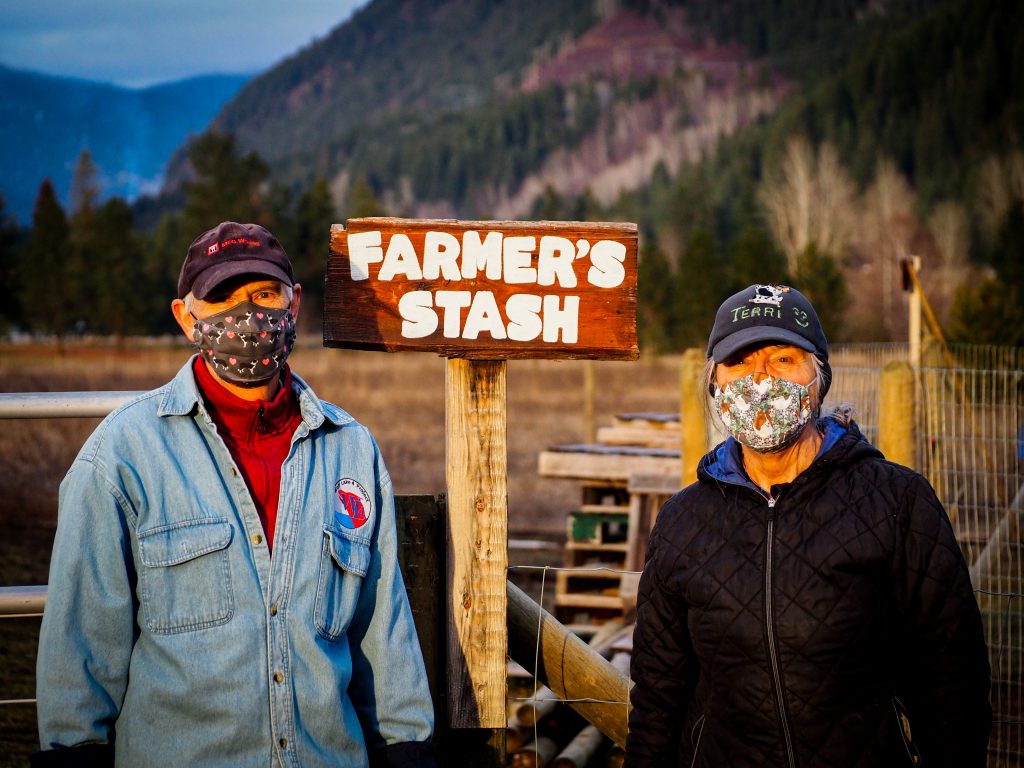
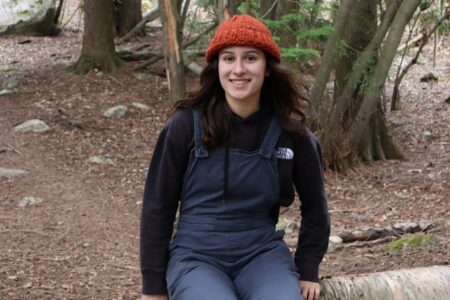
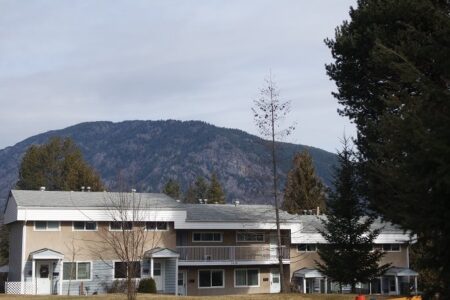

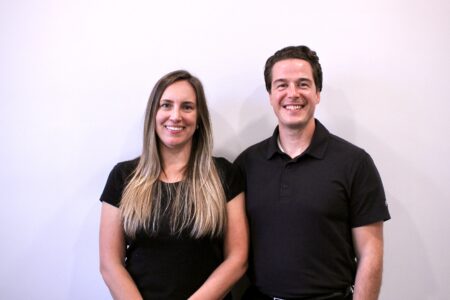














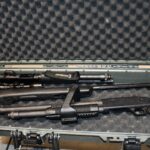




Comments